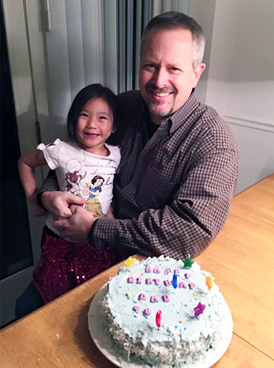If it Wasn’t for people . . . Those with limited authority wouldn’t have to lead.
“Authority?” Really.
If it wasn’t for people . . . Those with limited authority wouldn’t have to lead.
“I can appoint you to a position of authority, but you must exercise leadership,” or conversely, “Those with limited authority still must take the initiative and exercise leadership if creative work is ever to be accomplished.”
There are so many situations in organizations; business, volunteer organizations, or the military, where those without any real authority step forward to champion an idea or lead with boldness when the “hill just seems to steep to climb.” I have seen it enumerated time and again, always with amazement.
I’ve been in some rather critical military operations during my career serving in key positions of authority. To this day, I hear of stories where non-commission officers or petty officers took the initiative and made decisions to further the mission that I never knew about at the time; situations, where we may have failed, had someone with limited authority not stepped forward to make a decision and gather the momentum to proceed.
I recall a situation prior to the opening of the First Gulf War where our joint special operations task force was charged with inserting army special forces personnel deep into Iraqi territory on a surveillance mission. The key to success was the ability of our Army and Air Force helicopter pilots to carry the teams with very heavy vehicles through one of the worlds most robust air defense networks under conditions of near-zero visibility. Few of the aviators saw this mission as possible until one squadron commander, then Lieutenant Colonel, Rich Comer stood up and said that we could do this and then explained how he would lead the way. The missions were a huge success with strategic implications.
In Officers’ Christian Fellowship, when I arrived to assume the role of Executive Director, I found a man who exercised great leadership in spite of the fact that he was serving on an interim basis. Don Martin made the decision to invest $25,000 (a very large amount of money to OCF in 2000) in a conference center study. This action eventually led to the complete recapitalization of both OCF conference centers. It was a bold initiative.
And it happens in business. My favorite example is my son David. He is the Director of Mergers and Acquisitions for a very large pharmaceutical company. A large part of the companies business expansion has occurred over the years because they made smart decisions to acquire other business assets. But that always made David’s role a challenge.
Picture, a new acquisition or merger and he has to walk into a completely new environment and make it work. To the people of that new organization, David was always an outsider, with limited or no authority. Well, he did have the authority but no one knew it, so all practical purposes, he was without authority. But somehow he always managed to lead those people through cultural change, through structural changes, and through vision and mission changes to make them a productive part of his larger company. It takes boldness and confidence to create one’s own authority or shall we say to exercise of leadership where people will follow you into a new environment. Now I’m a father so maybe my thoughts on this are skewed; you decide.
I think our Lord expects us to exercise leadership in His name without the trappings of worldly authority. Jesus in His last days as a man spent time preparing His disciples to build and lead His church under trying conditions where they had no recognized authority. So how did they do it? From where did their authority and power come? Yes, the Holy Spirit. “But you shall receive power when the Holy Spirit has come upon you; and you shall be witnesses to Me . . .” (Acts 1:8) I know that power has been part of Rich’s, Don’s, and David’s lives. Is it part of yours?





